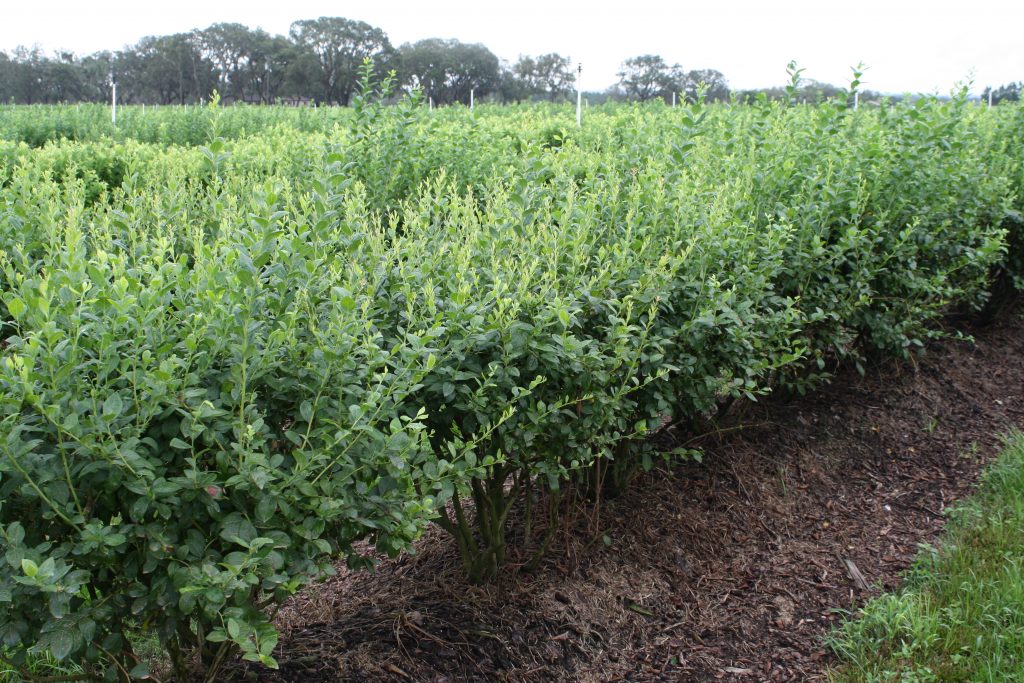By Clint Thompson
It felt like spring in February and winter in March. Unfortunately, that was a recipe for disaster for blueberries in Alabama.

The sub-freezing temperatures on March 20 devastated the state’s blueberry crop, says Jacob Kelley, Alabama Regional Extension agent for Baldwin, Butler, Clarke, Conecuh, Escambia, Mobile, Monroe and Washington counties in Southwest Alabama.

“We had that March 20 freeze and that pretty much wiped out all of the blueberries in the southwest portion of Alabama. Nobody’s really going to have a commercial crop,” Kelley said. “I talked to one grower, who said out of 10 acres of blueberries, he’ll probably have a five-gallon bucket of blueberries when it comes time to harvest.
“It was just so warm this winter. We only had a couple of cold snaps. It was warm all through January and parts of February, and we come to March 20, and it gets down to 24 degrees (Fahrenheit). We were right in the middle of blueberry blooms for some of the mid-to-late-season stuff. The early stuff had just set fruit and when that freeze came through, it pretty much shriveled every berry that was there, and all of the blooms that were present on the plants fell off.”
Kelley said the largest blueberry grower produces 50 acres in Escambia County. He lost about 400,000 pounds of blueberries.
The freeze not only impacted the blueberries but the region’s satsuma crop as well.
“It pretty much wiped out the blueberry crop, and I’d say it wiped out about 60% of the satsuma crop depending on where you were. Some of those guys on higher ground managed to have more flowers than the folks in the bottom. We won’t know the extent of that damage until probably the beginning of June,” Kelley said. “A lot of times the satsumas will set fruit on flowers that have damaged parts, and once the weather starts getting warm, then that plant will abort a lot of the fruit because it wasn’t well pollinated. I think that’s what we’re going to see this year is a lot of fruit drop coming at the end of May and early June.”









